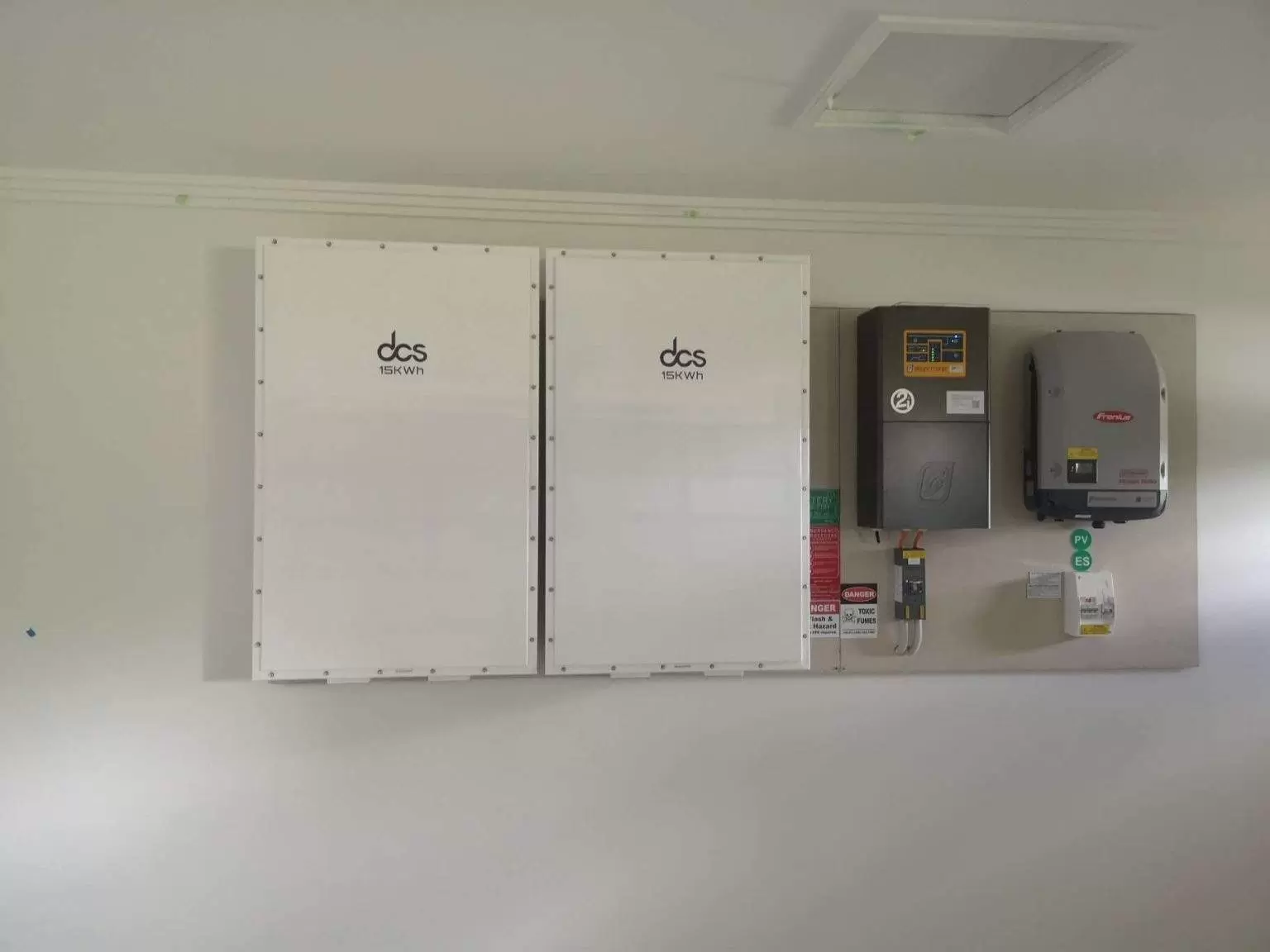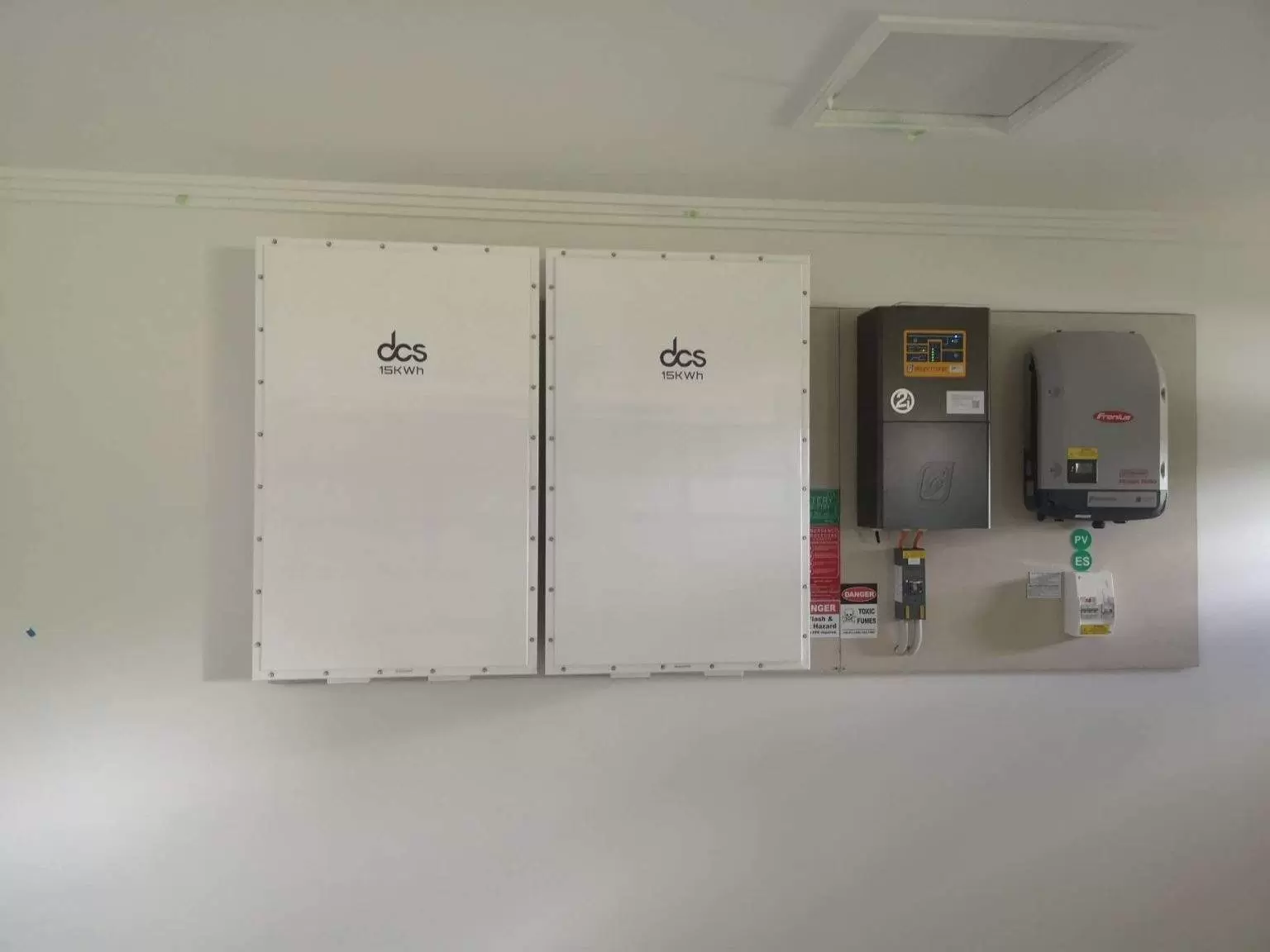As we continue to face the urgency of climate change, solar power has been gaining prominence as a sustainable and environmentally friendly source of energy. With advancements in technology, more and more households are embracing off-grid solar systems, powered by efficient solar batteries. These batteries are instrumental in maximizing the benefits of solar power, allowing users to store excess energy produced during the day for use when sunlight is unavailable. This blog post will delve into the world of off grid batteries for solar, providing essential insights and information on their functionality, types, selection, significance, and future.
What are Off-Grid Batteries?
Off-grid batteries, in their simplest form, are the lifeblood of off-grid solar systems. Imagine them as diligent vaults, storing the surplus energy generated by your solar panels during the day. The beauty of off-grid batteries lies in their ability to provide power when the sun isn’t shining – be it at night or during periods of poor weather. The key word here is ‘off-grid’. This means the batteries, coupled with your solar panels, allow you to operate independently from the main electricity grid.
The process is straightforward: during daylight hours, the solar panels absorb the sun’s energy and convert it into electricity. Rather than using this energy immediately, off-grid batteries store the excess for later use. In an on-grid or grid-tied system, extra energy is sent back to the grid, and electricity is drawn from the grid when needed.
However, off-grid systems stand on their own two feet. By storing surplus energy, they ensure a steady and reliable supply of power, irrespective of the availability of sunlight or grid electricity. An interesting point to note is that the term ‘off-grid’ doesn’t necessarily mean the system is located in a remote area without access to the main grid. It simply means the system can function autonomously, providing an attractive option for those looking for energy independence or a backup power supply.
Different Types of Off Grid Solar Batteries
Navigating the world of off grid solar batteries can be akin to walking through an electrified maze. However, fear not! Let’s demystify this by delving into the three key types of batteries commonly employed in off-grid solar systems. First up, we have the time-honored lead-acid batteries, available in two varieties: flooded and sealed. Their main selling point? Affordability and widespread availability. However, they do come with the need for regular TLC in the form of maintenance.
Then, meet the new kids on the block – lithium-ion batteries. They may make your wallet wince at first due to their higher price tag, but they have the last laugh when it comes to longevity and efficiency. This has led to their increasing popularity among solar enthusiasts.
Allow me to introduce flow batteries, the freshest entrants to the battery world. Whilst they’re still finding their footing in the market, they offer an exciting potential for long-duration storage. So, there you have it – a quick tour of the primary players in the off-grid solar battery world. Each with its own set of pros and cons, the choice comes down to your individual needs and circumstances. After all, in the realm of solar power, one size most certainly does not fit all!
Selecting the Right Off-Grid Battery for Your Solar System
Venturing into the off-grid solar arena and feeling lost in the battery selection process? Fret not! A variety of factors come into play when you’re on the hunt for that perfect battery match for your solar system. Take a step back and reflect on your energy needs. This includes calculating how much power your household consumes daily and estimating the storage capacity you’ll need. Your budget can significantly influence your decision. Lithium-ion batteries, for example, are pricier than their lead-acid counterparts, but they excel in efficiency and longevity.
Consider the upkeep, too. Some batteries might need regular tender loving care, while others can hum along nicely with minimal intervention. Space could also be a game-changer. Batteries vary in size, so make sure you have enough room to house your chosen battery type. Don’t forget to ponder over the performance characteristics of the battery, like its lifespan, efficiency, and how deeply it can discharge before needing a recharge.
The Significance of Off Grid Solar Battery Storage
When it comes to off grid solar battery Storage, they serve as silent champions of your solar system. Their role? Ensure that your house never experiences a power cut, that your lights never flicker out, and that your appliances never take an unexpected break. They store the surplus energy your solar panels create during the day, waiting patiently in the wings to leap into action when the sun takes its leave. As a result, they provide a continuous, steady flow of electricity that keeps your daily life humming along nicely.
But their significance extends beyond mere convenience. They mark the first step towards energy independence, liberating you from the grips of conventional power sources and minimizing your reliance on fossil fuels. What’s more, they also play a crucial role in combating climate change.
By harnessing the power of the sun, they contribute to a more sustainable, greener world, setting the stage for a future where clean, renewable energy is the norm rather than the exception. So, the next time you switch on a light or turn on an appliance, give a thought to these unsung heroes of the renewable energy world – the off-grid solar batteries. They’re doing far more than just keeping your lights on – they’re paving the way for a brighter, more sustainable future.
 Choosing the Best Batteries for Solar Off Grid
Choosing the Best Batteries for Solar Off Grid
Choosing the best batteries for solar off grid system can feel a bit like searching for a needle in a haystack. But don’t despair – the secret to finding your perfect power partner lies in understanding your unique energy needs and aligning them with the right battery technology. If you’re after longevity, high efficiency and low maintenance, lithium-ion batteries are a popular choice. They come with a higher initial cost but offer more cycles and can work at a higher depth of discharge, making them cost-effective in the long run.
On the other hand, if you’re operating on a tighter budget, lead-acid batteries could be your go-to. They’ve been around the block a few times and are widely available. Their maintenance needs might be higher, but they can provide reliable performance at a lower upfront cost. Flow batteries are the newest entrants and show promise for long-duration storage, although they’re still finding their feet in the market.
But let’s not forget space. If your installation area is small, you might want to opt for a battery type that offers more energy density, meaning it can store more energy in a smaller space. Last but not least, factor in your local climate. If you live in a region that’s prone to hot weather, opt for a battery type that can tolerate high temperatures without a significant reduction in performance or lifespan.
Maximizing Off Grid Solar System with Batteries
Harnessing the full potential of your off grid solar system with batteries isn’t merely about installing the right battery. It’s about crafting a holistic, energy-smart approach. Begin your journey by embracing energy-efficient appliances that promise a powerful performance without draining your battery. Adopting energy-saving habits, like switching off unnecessary lights and unplugging idle electronics, can further reduce energy wastage and help your stored solar power stretch further.
But what about the star of the show, your solar battery? Regular maintenance, including thorough cleaning and timely part replacement, is crucial in maintaining its efficiency and extending its lifespan.
Consider incorporating a battery management system into your solar setup. This intelligent little device continually monitors your battery’s state, adjusting the charge and discharge rates to optimize performance and prolong battery life. Pay heed to the weather patterns in your area. If you live in a region with long winters or frequent overcast days, you might want to consider a battery with a higher storage capacity to cover those sunless stretches.
The Future of Off-Grid Batteries
Prepare to be electrified by the future of off-grid batteries! Imagine a world where energy storage is not just efficient, but also economical and environmentally friendly. That’s precisely where we’re headed. In the pursuit of greener pastures, technological advancements are shining a light on promising innovations. Saltwater batteries are making a splash with their non-toxic, safe, and recyclable properties. Meanwhile, solid-state batteries are stealing the limelight by promising greater energy density, longer lifespan, and better safety.
The aim is clear: break down the barriers that stand in the way of universal renewable energy adoption. And it’s not just about creating better batteries. It’s about building a more connected and integrated energy ecosystem. Picture this: Your off-grid battery not only powers your home but also communicates with other energy sources.
It could potentially collaborate with a nearby wind farm, or even your neighbor’s solar panels, to ensure you have a constant supply of clean energy. While we’re still at the dawn of these developments, the pace of change is rapid and exhilarating. As we continue to warm up to renewable energy, the demand for off-grid batteries is set to soar, driving even more innovation. So, buckle up, energy enthusiasts. The future of off-grid batteries is looking charged and ready to revolutionize the way we harness the sun’s power.
FAQs
Q: Can I use car batteries for my off-grid solar system?
A: Although technically possible, it’s not advisable to use car batteries as they are not designed for deep discharging and their lifespan would be significantly reduced. Solar systems typically require deep-cycle batteries, like lithium-ion or lead-acid types, which can handle frequent charging and discharging.
Q: How long does a solar battery last?
A: The lifespan of a solar battery largely depends on its type and quality, and how well it’s maintained. For instance, lead-acid batteries may last between 5-7 years, whereas high-quality lithium-ion batteries can function effectively for up to 15 years.
Q: Do off grid batteries for solar work during power outages?
A: Yes, indeed! That’s one of the key advantages of having an off-grid solar system with battery storage. Even in the absence of grid power, your solar battery can provide stored energy, ensuring you have a consistent flow of electricity.
Q: What’s the best way to maintain my solar battery?
A: Regular cleaning and part replacement can help maintain battery efficiency. For lead-acid batteries, you might need to check water levels and add distilled water as necessary. A battery management system can be particularly helpful in monitoring the battery’s state and optimizing performance.
Conclusion
As we bid farewell to the fossil fuel era and welcome the solar revolution, off-grid batteries are becoming a crucial part of our energy transition journey. They provide a dependable, sustainable and cost-effective energy solution, helping to create a greener future and giving us greater control over our energy consumption. As technological advancements continue to transform the industry, the potential of these powerhouses is set to shine even brighter. Off-grid solar batteries are more than just an add-on to your solar panels – they represent a glimmer of hope in our pursuit of a sustainable, energy-self-sufficient world.
| Other Good Articles to Read |
| skank blogs |
| unreal blogs |
| tba blogs |
| all city forums |
| dany blogs |
| the music blogs |
| key forums |
| the big blog theory |
| joe blogs |
| blogs 4 me |
| Blogs Emon |
| Related Business Listings |
| Contact Directory |
| Local Business Profiles |



